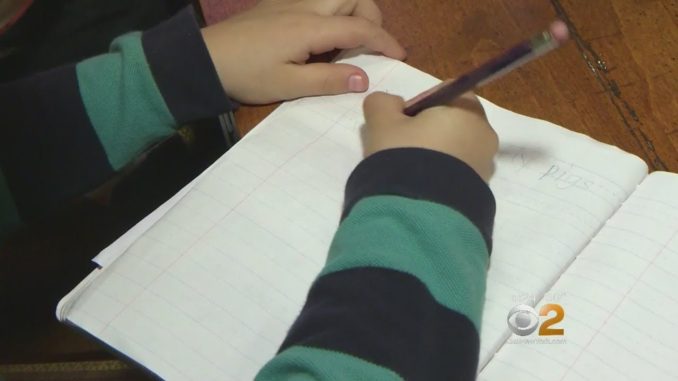
Are after-school homework assignments a helpful tool or an unnecessary burden? The ongoing debate surrounding the benefits of homework has sparked discussions among parents, educators, and experts alike. In this blog post, we delve into the research, explore differing perspectives, and propose a fresh approach to rethinking after-school assignments. Join us as we navigate through “The Homework Debate: Rethinking After-School Assignments”!
The Homework Debate: Rethinking After-School Assignments
Is homework truly beneficial for students, or is it time to reconsider the traditional after-school assignments? The conversation around the effectiveness of homework is complex, with varying opinions from parents and educators. While some believe that homework reinforces learning and responsibility, others argue that it can lead to stress and burnout among students.
Research studies have shown conflicting results regarding the impact of homework on academic performance. Additionally, disparities in access to resources outside of school further complicate the picture, raising concerns about equity in education. As we navigate this ongoing debate, it’s essential to consider not only what is being assigned but also why it’s being assigned.
By exploring different perspectives and listening to student feedback, we can begin to reshape our approach towards after-school work. It’s time to critically assess the role of homework in fostering meaningful learning experiences for all students.
Is Homework Good for Kids? Here’s What the Research Says
Research on whether homework is beneficial for children yields a mixed bag of results. While some studies suggest a positive correlation between homework and academic achievement, others question its effectiveness in enhancing learning outcomes. The debate continues to spark discussions among educators, parents, and students alike.
One area of contention lies in the disconnect between parental beliefs about the value of homework and educators’ perspectives on its impact. Parents often view homework as essential for reinforcing classroom learning, while teachers may have varying opinions on its necessity depending on the subject or grade level.
Furthermore, research indicates that homework can be particularly useful for certain subjects or specific age groups. For instance, older students might benefit more from independent study time at home compared to younger ones who need more hands-on activities during school hours.
A Disconnect Between Parents and Educators
Parents and educators often find themselves at odds when it comes to the topic of homework. While parents may see after-school assignments as essential for academic success, teachers sometimes struggle with balancing the workload they assign. This disconnect can lead to misunderstandings and frustration on both sides.
Parents may believe that more homework equals better learning outcomes, while educators might prioritize quality over quantity. Communication is key in bridging this gap; open dialogue between parents and teachers can help align expectations and create a supportive environment for students.
Understanding each other’s perspectives is crucial in finding common ground. Parents should trust educators’ expertise in determining the appropriate amount of homework, considering factors such as age-appropriateness and individual student needs. Collaborating rather than conflicting can lead to a more harmonious approach to after-school assignments.
Homework Can Be Useful For Certain Subjects or Grades
Homework can serve as a valuable tool for reinforcing concepts learned in certain subjects or grades. For example, math assignments can help students practice problem-solving skills and solidify their understanding of mathematical principles. Similarly, language arts homework can enhance reading comprehension and writing abilities by providing opportunities for independent practice.
In science classes, homework tasks may involve conducting experiments or research to deepen student understanding of scientific concepts. For older students in advanced courses like AP or IB programs, homework plays a crucial role in preparing them for exams and college-level coursework.
By tailoring homework assignments to specific subjects and grade levels, educators can ensure that students receive targeted support where they need it most. This approach helps maximize the effectiveness of after-school work and promotes academic growth across different areas of study.
Is Homework Actually Helpful for Learning?
Is homework actually helpful for learning? This question sparks a heated debate among educators, parents, and students alike. Some argue that homework reinforces classroom lessons, while others believe it adds unnecessary stress to students’ lives.
Research studies show mixed results on the effectiveness of homework in enhancing academic performance. While some find a positive correlation between homework and higher grades, others suggest that excessive assignments may not always lead to better learning outcomes.
It’s important to consider the quality over quantity when assigning homework tasks. Meaningful assignments that encourage critical thinking and practice can be beneficial for reinforcing concepts learned in class. However, busywork or repetitive tasks may not contribute significantly to student learning.
The effectiveness of homework depends on various factors such as the type of assignment, individual student needs, and teacher support. It’s essential to strike a balance between providing meaningful practice opportunities and avoiding overwhelming students with excessive workloads.
Heightens Equity Issues
The debate over homework isn’t just about study habits; it also shines a light on equity issues within education. Students from disadvantaged backgrounds may not have the same resources or support at home to complete assignments as their more privileged peers.
This disparity can widen the achievement gap, putting some students at a disadvantage before they even step foot in the classroom. For example, children who lack access to technology or quiet study spaces may struggle to keep up with homework expectations compared to those with ample resources.
Addressing equity concerns means recognizing that not all students start from the same place academically or socially. Schools must consider these disparities when assigning after-school work and provide additional support where needed, ensuring that every student has an equal opportunity to succeed.